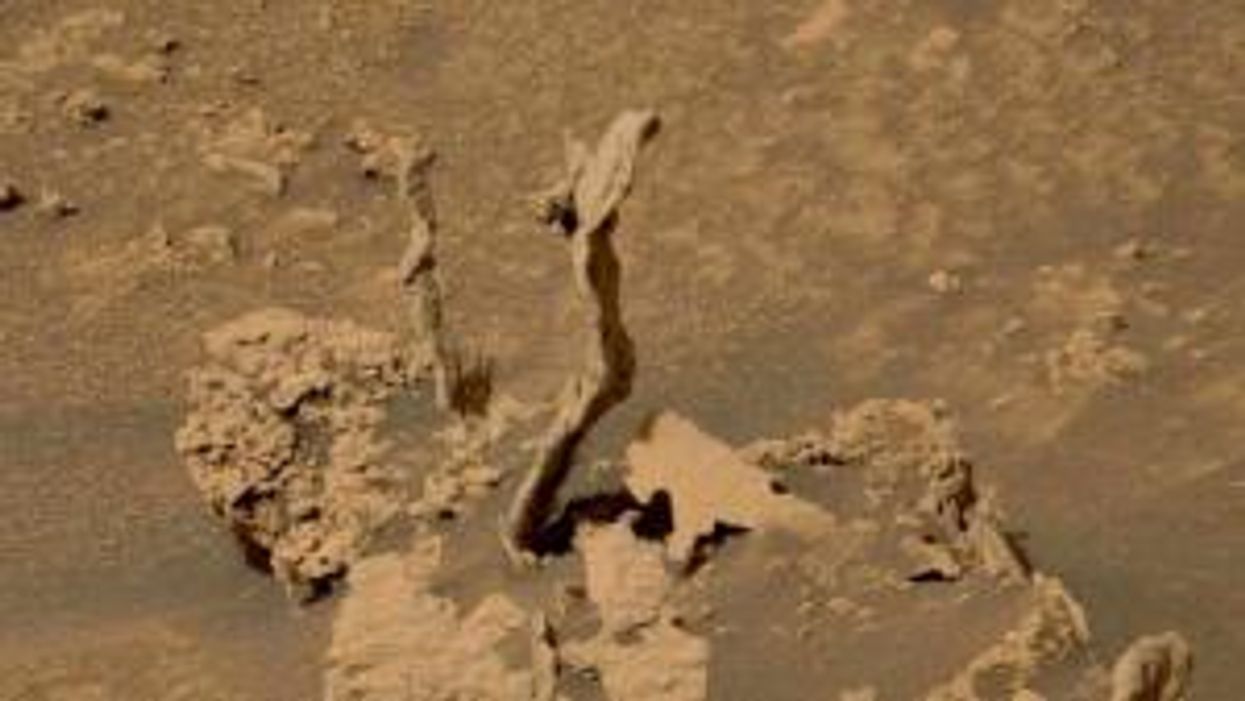Breanna Robinson
Jun 08, 2022
NASA’s Curiosity Rover Just Discovered Some Alien-Looking, Twisted Stone Structures on Mars
Video
NASA's Curiosity rover has spotted bizarre cultural "spikes" on Mars' Gale Crater.
The unusual looking rock was initially highlighted by the SETI Institute (Search for Extraterrestrial Intelligence) on Twitter, and the photo was taken on May 15, or sol 3474, as stated by NASA.
"The spikes are most likely the cemented fillings of ancient fractures in a sedimentary rock. The rest of the rock was made of softer material and was eroded away," the SETI institute tweeted.
People took to the post's comments to share their assumptions about how this rock formation could have been made.
Sign up to our new free Indy100 weekly newsletter
One wrote: "If I was to guess, it looks a lot like an ancient lightning strike column. It happens here on earth when lightning hits the beach sand. The sand turns to molten silica [and] then solidifies into a column. When the softer dirt around it erodes, the column is what's left."
"Let's see what's under the dust …looks like metal.. I see some crystalline[s] of various types. Lots of iron that circular impact mark is telling…" another added.
A third wrote: "Could it possibly be due to magnetism since there [are] dust storms constantly there any dirt that has any metal in it. If it's magnetized, would it not eventually find its way to each other and make strange patterns. And with the low gravity, they could just go up and up."
And with such a thin atmosphere, which is more than 100 times thinner than the earth's – the landscape can be tough terrain.
The powerful winds of up to 100 kilometers per hour (62 miles per hour), ancient water, and the periodic grand dust storms have influenced the topography for millions of years and made the features as captured by the rover.
With scientists believing they've spotted an "alien" watching the Mars rover to conspiracy theories about what the "doorway" on the planet could be, it's safe to say that many are asking this very question: could there be life on the Red Planet?
Have your say in our news democracy. Click the upvote icon at the top of the page to help raise this article through the indy100 rankings.
Top 100
The Conversation (0)














